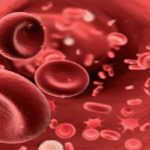You often have headaches
When we drink caffeinated beverages, the blood vessels in the brain constrict, reducing blood flow. Therefore, when you stop drinking coffee and other caffeinated beverages, blood flow to the brain will also increase.
Researchers from Johns Hopkins University and the University of Vermont explained that the change in blood flow to the brain is the cause of headaches when you suddenly stop drinking coffee.

Feeling a fast heart rate and nervousness
Many people drink coffee to stay alert, full of energy throughout the day. Numerous studies have also shown that supplementing caffeine in high or moderate doses can help you feel more alert.
But if you drink coffee and feel your heart beating faster and your body more nervous than usual, it is a sign of abnormality that you should stop drinking coffee before encountering health problems.

You often find it hard to concentrate
In addition to increasing energy, drinking coffee also helps enhance your ability to concentrate. Several studies have shown that people who are sleep deprived and supplemented with caffeine can improve their concentration and accuracy at work.
According to experts’ advice, you should not rely on coffee to stay focused. Instead, you should try to get enough sleep, improve sleep quality to enhance cognitive abilities.
Feeling nauseous, vomiting, and muscle pain
These are common symptoms of caffeine withdrawal syndrome. If these symptoms are severe, you can consult with a doctor for advice on how to effectively quit caffeine.
Dizziness is often associated with headaches or migraines. The cause is usually an increased blood flow to the brain. We can experience one or both of these symptoms during caffeine withdrawal.



































